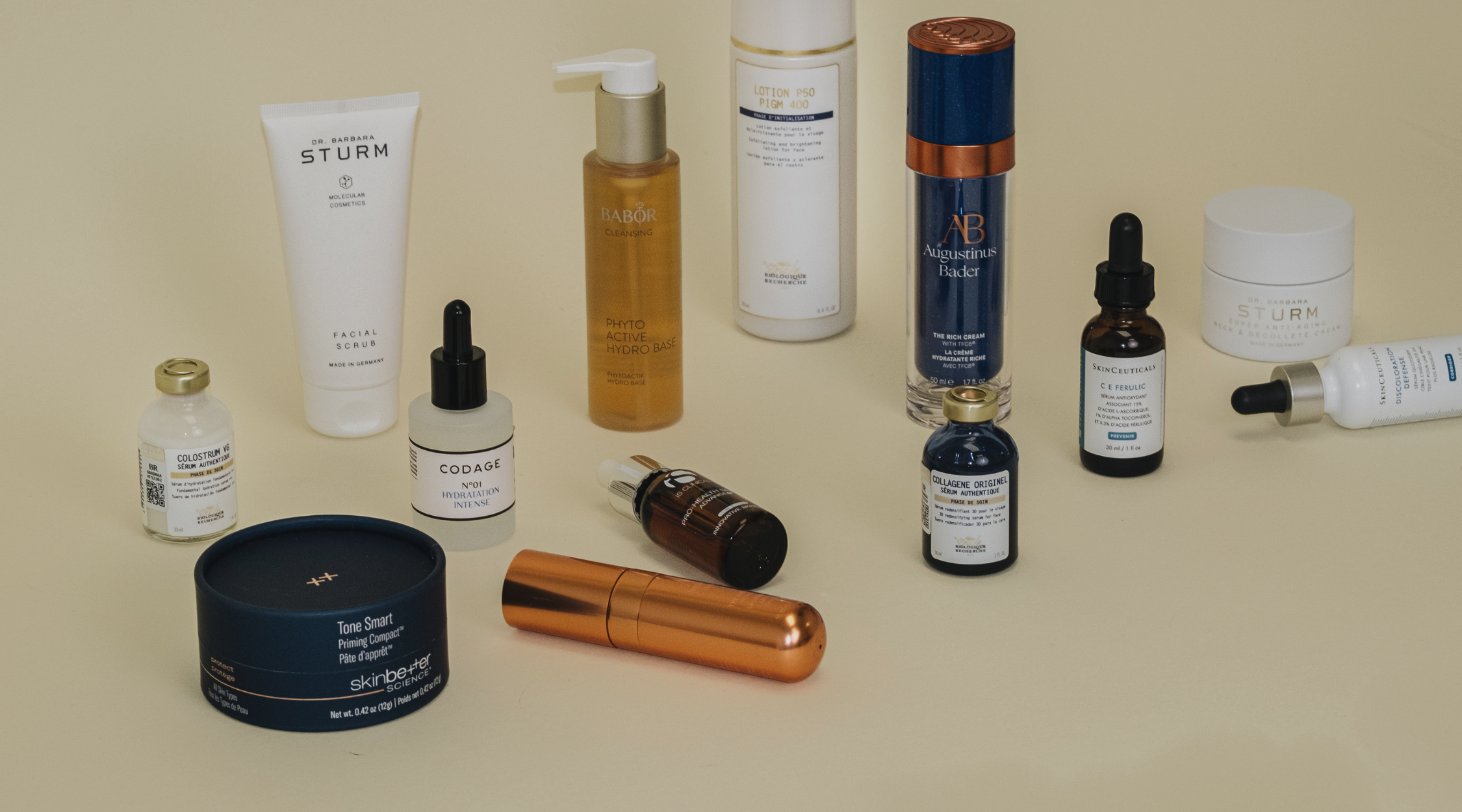
The Signs of a Compromised Skin Barrier
In the pursuit of flawless skin, we often focus on addressing visible concerns like acne or dryness, but one crucial aspect is overlooked: the skin barrier. But what exactly is a compromised skin barrier? Check out this week’s blog to get the low-down on everything skin barrier––from warning signs to how to care for yours properly.
La recherche d'une peau parfaite passe souvent par la résolution de problèmes visibles tels que l'acné ou la sécheresse. Toutefois, un aspect crucial de cette quête est trop souvent négligé : la barrière cutanée. Mais qu'est-ce qu'une barrière cutanée compromise ? Consultez le blog de cette semaine pour tout savoir sur la barrière cutanée, des signes révélateurs aux soins appropriés à lui apporter.
WHAT IS THE SKIN BARRIER?
The skin barrier–– also known as the stratum corneum––is the outermost layer of the epidermis. It comprises flattened, dead skin cells that serve as a protective barrier against external aggressors. It also retains moisture to keep your skin hydrated and healthy. When this barrier becomes compromised, it can lead to many issues.
WHAT ARE THE MOST COMMON SIGNS OF A COMPROMISED BARRIER?
A compromised (or damaged) skin barrier occurs when the outermost layer of your skin is weakened. This can happen due to a variety of factors, including:
- The use of harsh, stripping skincare products (such as gel cleansers in the winter or too-strong retinol or acids)
- Environmental stressors like pollution, UV radiation, or cold air
- Underlying skin conditions such as eczema or psoriasis
When your skin barrier is compromised, it loses its ability to retain moisture effectively, leading to dehydration, increased sensitivity, and a higher likelihood of irritation or inflammation.
IDENTIFYING AND TREATING A COMPROMISED SKIN BARRIER
Common signs include redness, flakiness, tightness, itching, and a feeling of roughness or uneven texture. You may also notice that your skin feels more sensitive than usual, reacting more strongly to products or environmental triggers that didn't bother it before. This redness and irritation may also make way for some unwelcome breakouts.
If you're experiencing any of these symptoms, it's essential to take steps to repair and strengthen your skin barrier to restore its health and resilience.
Treating a compromised skin barrier requires a gentle and nurturing approach that focuses on replenishing moisture, soothing inflammation, and overall repairing.
- Start by simplifying your skincare routine and avoiding harsh or irritating ingredients. This means tossing any unprofessional products and ditching products with fragrances, alcohol, and exfoliants (yes, that means you’ll have to skip on your actives for a while!).
Instead, opt for gentle cleansers (we love the Alastin Skincare Ultra Calm Cleansing Cream), hydrating serums, and rich, lipid-packed moisturizers like the Skinceuticals Triple Lipid Restore. These help strengthen and repair the fragile skin barrier.
YONKA PARIS CLEANSING MILK
AUGUSTINUS BADER THE RICH CREAM
PCA SKIN HYDRALUXE INTENSIVE HYDRATION
- Additionally, consider incorporating a barrier repair cream or ointment into your routine, especially if your skin is severely compromised.
GLO SKIN BEAUTY BARRIER BALM
PRODERM BARRIER REPAIR CREAM
- Finally, be patient. Repairing a damaged skin barrier takes time, so be consistent with your skincare routine and give your skin the love and attention it deserves. It takes about 4-6 weeks for the skin to regenerate, so you should start seeing results within the time frame after starting your extra TLC routine.
Until next time,
The BSE Team















Leave a comment